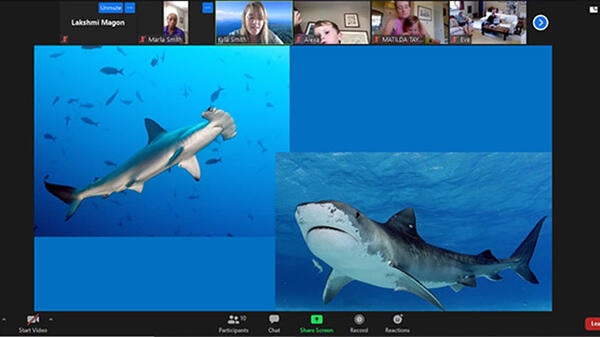In July, BIOS collaborated with the Bermuda National Library (BNL) to produce a virtual reading session for the Youth Library’s summer reading program. This program, designed to encourage school-aged children to continue using their literacy skills during the summer months, runs from late June through late August and consists of a variety activities and workshops that young readers can participate in to earn points for prizes.
Training the Next Generation of Bermudian Scientists
August 31, 2020
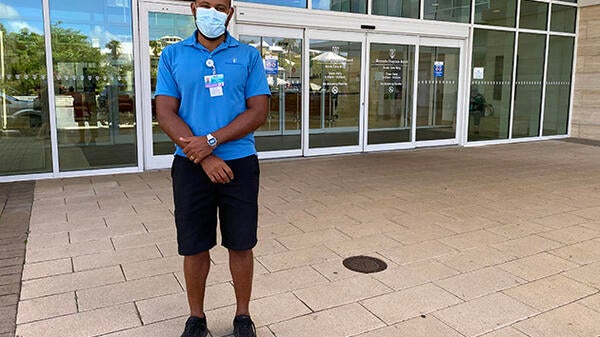
Among the many lessons we’ve learned from the COVID-19 pandemic is the value of having a highly skilled scientific workforce that is capable of leveraging its education to serve the broader community during a time of need.
BIOS Scientist Awarded NSF Funding for Zooplankton Research
August 31, 2020

Earlier this year, Leocadio Blanco-Bercial, a zooplankton ecologist at BIOS, was awarded funding from the National Science Foundation (NSF) for a three-year investigation to determine how environmental variables, such as temperature and oxygen, influence the structure of zooplankton communities found within the ocean’s twilight zone (depths between 650 to 3000 feet, or 200 to 1000 meters), also known as the “midwater.”
A New Frontier in Science Teaching and Learning
August 31, 2020
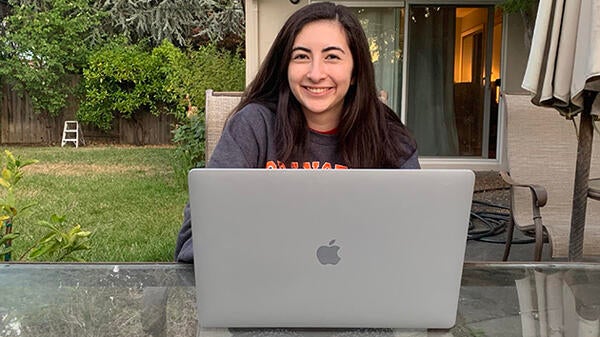
The ongoing COVID-19 pandemic forced BIOS, as well as many other research and education institutions around the world, to suspend on-site experiential learning activities, including multiple university-level summer internships. However, due to a unique alignment of circumstances, including both the proposed research project and the intern’s skill-set and technical expertise, BIOS was able to offer the Princeton Environmental Institute (PEI) Internship remotely this year.
BIOS Highlights Lionfish Threat
February 26, 2012
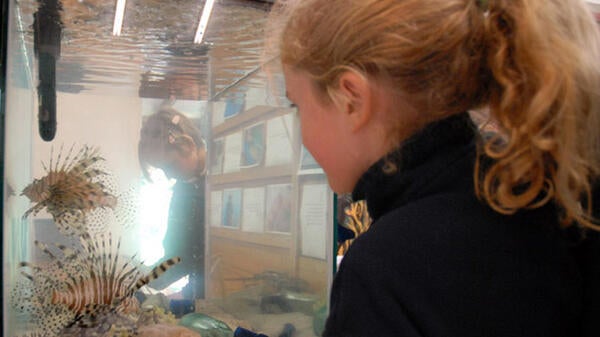
When more than 1,100 Bermudian primary school children took part in the Bermuda Institute of Ocean Sciences [BIOS] Explorer programme at the East End research facility in the spring of 2011, two colourful lionfish, Simba and Nala, were among the stars of the show.
BIOS Explorer 2012: Gizmos and Gadgets to Study the Ocean
February 26, 2012
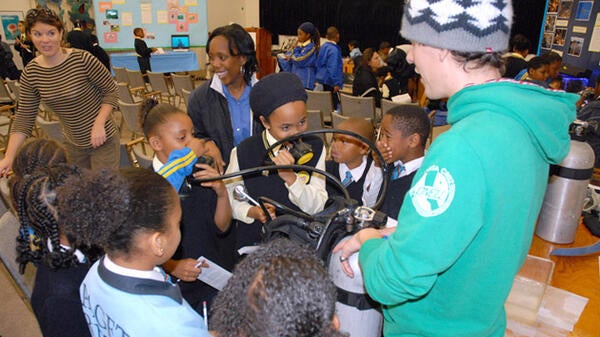
Read more here.
Hooked on Science
February 26, 2012
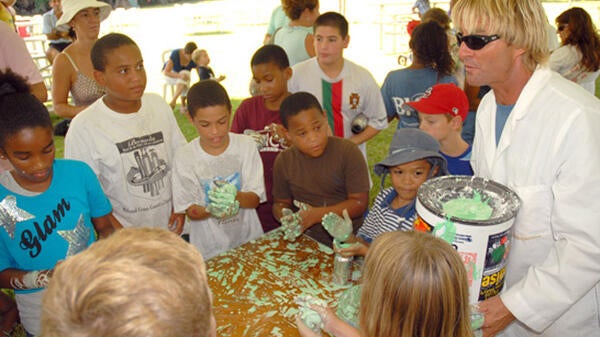
Saltus alum John Paul Skinner swears he has the “best job ever.” In his role as Education Officer at the Bermuda Institute of Ocean Sciences (BIOS), “JP,” as he likes to be called, regularly divides his time between running a number of diverse educational programmes and taking students into the field—“the really fun part,” he says, as it typically involves a boat ride out to Bermuda’s reefs.
A Birds-eye View of Island’s Underwater Beauty
February 26, 2012
In the past, if you wanted to measure Bermuda’s reefs you had to don a scuba tank and dive, tape measure in hand; but now, a new scientist at Bermuda Institute of Ocean Sciences, Dr Eric Hochberg, hopes to get a little help from above.
Unprecedented, Man-made Trends in Ocean’s Acidity
February 26, 2012
As part of the natural carbon cycle, atmospheric CO2 reacts with the ocean’s surface waters to become carbonate, which can be converted by marine organisms into calcium carbonate. Many marine organisms—including corals, mussels, and algae—rely on calcium carbonate to build their shells or skeletons, making the molecule an important part of marine processes.
Dissecting the ‘Black Box’ of the Ocean’s Biological Carbon Pump
February 26, 2012
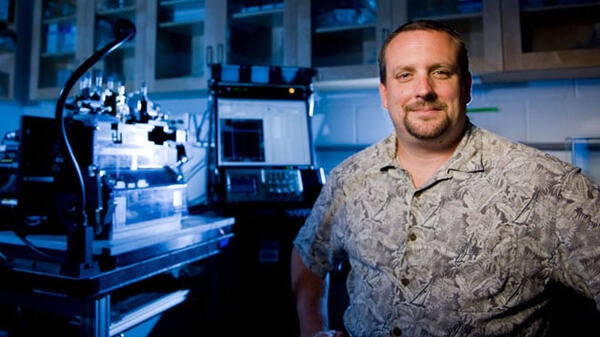
The global ocean absorbs roughly 25% of anthropogenic carbon dioxide (CO2) emissions. A significant portion of this is driven by the conversion of CO2 into organic compounds (e.g., photosynthesis) by single cell plants in the ocean, a process called the biological carbon pump. Despite the global importance of this process, it remains a daunting task to accurately predict the future strength of the biological carbon pump based upon existing knowledge and ocean ecosystem models. Furthermore, the response of phytoplankton physiology to changing ocean chemistry—such as ocean acidification—and the importance of previously underappreciated mechanisms of the biological carbon pump are additional complicating factors. The goal of this seminar is to present new and developing research on the ocean’s biological carbon pump.
